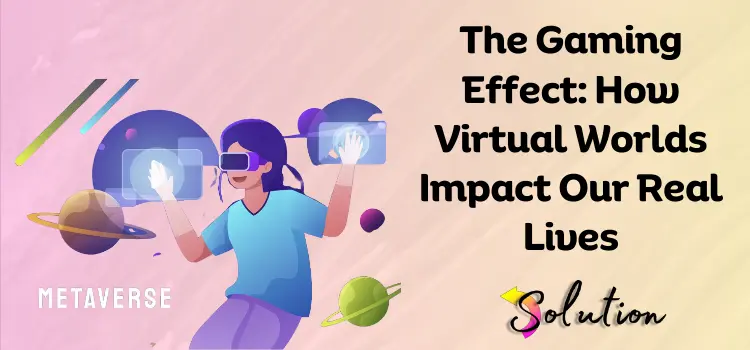
In an era where digital landscapes continue to evolve, Virtual Worlds Impact Our Real Lives have become more than just a source of entertainment. These immersive environments significantly influence our daily lives, shaping how we communicate, work, learn, and even maintain relationships.
The Evolution of Virtual Worlds
Virtual worlds have advanced from simple text-based platforms to complex, interactive spaces with realistic graphics and social structures. Games like Second Life, Minecraft, and VRChat have demonstrated how individuals can create, explore, and interact in digital realms that mirror real-life experiences.
Impact on Communication and Socialization
One of the most profound effects of virtual worlds is on human interaction. People across the globe connect in these spaces, overcoming geographical barriers. Virtual environments provide an avenue for those with social anxiety to engage more comfortably, fostering friendships and professional connections.
Education and Skill Development
Virtual worlds serve as valuable tools for education and training. Institutions use simulations and VR-based classrooms to provide hands-on learning experiences. Medical students, for example, practice surgeries in a risk-free environment, while engineers develop and test models before real-world implementation.
Economic Opportunities
The virtual economy has created numerous financial prospects. From digital real estate in platforms like Decentraland to selling virtual goods and NFTs, people earn a living through online ventures. Businesses are also leveraging virtual spaces for meetings, product showcases, and employee training.
Mental Health and Well-Being
Virtual worlds contribute positively to mental health by offering escapism, therapy, and social support. Many individuals use these platforms for stress relief, self-expression, or as a coping mechanism for real-life challenges. However, excessive engagement can lead to negative effects such as addiction and social isolation.
Challenges and Ethical Considerations
While virtual worlds bring many benefits, they also present challenges, including data privacy concerns, cyberbullying, and digital addiction. The need for ethical regulations and user awareness is crucial to ensuring a safe and positive experience for all participants.
The Future of Virtual Worlds
As technology continues to advance, virtual worlds will become more immersive, further blurring the line between digital and real-life interactions. The rise of the metaverse and artificial intelligence will likely revolutionize how we engage with these digital spaces, shaping the future of work, entertainment, and human connection.
Conclusion
Virtual worlds have a profound impact on our real lives, influencing how we interact, learn, and conduct business. While they offer immense opportunities, it is essential to navigate them responsibly. As technology continues to evolve, embracing the benefits while addressing the challenges will be key to making virtual worlds a positive extension of our reality.